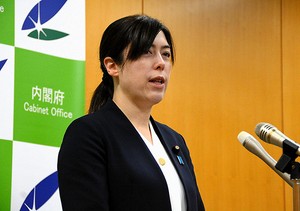By TATSUYUKI KOBORI/ Staff Writer
October 19, 2021 at 14:50 JST
In some creative endeavors, the more professional knowledge people have, the more likely they will have tunnel vision and less likely to formulate a free and superior idea, a new study shows.
A group of researchers, led by Kazuhiro Ueda, a professor of cognitive science at the University of Tokyo, showed that participants with less professional knowledge fared better when asked for ideas on improving the performance of an item in question.
“Professional knowledge is important, of course," Ueda said. "But in the initial process of putting an idea out, people with less professional knowledge may be able to actively participate.”
The findings were recently published online in Scientific Reports.
The researchers asked 200 participants about their special knowledge pertaining to engineering and acoustics, using stereo and computer speakers.
The participants were also asked to take a picture of their own speaker and come up with an idea of a new function for the audio device.
The researchers processed these images to see where the participants’ attention was focused on.
They also asked acoustic technology experts to value the participants’ ideas for a new function.
The researchers also analyzed tendencies by using a computing natural language processing technique.
As the result, they found the tendency of participants with more professional knowledge to focus on the details and concentrate their attention solely on the object.
Many such participants “could not come up with an idea” for a new function and proposed existing ideas, such as downsizing and making them higher quality.
From a statistical analysis, the concentrated attention had a negative effect on the quality of their ideas, the researchers said.
On the other hand, those with less professional knowledge tended to divide their attention and not focus solely on the device.
They tended to come up with an idea that experts valued relatively highly, such as a “speaker built into a book or a magazine.”
Dividing their attention on the problem at hand had a positive effect on their thinking, the researchers said.
Those with more professional knowledge may tend to take a narrow look, while non-professionals may have a wide breadth of vision and think freely.
Similar tendencies were found in a survey targeting more than 200,000 reviews of speakers sold on the online retailer Amazon, Ueda said.
The results of the study can be read here:(https://www.nature.com/articles/s41598-021-97215-5)




















A peek through the music industry’s curtain at the producers who harnessed social media to help their idols go global.
A series based on diplomatic documents declassified by Japan’s Foreign Ministry
Here is a collection of first-hand accounts by “hibakusha” atomic bomb survivors.
Cooking experts, chefs and others involved in the field of food introduce their special recipes intertwined with their paths in life.
A series about Japanese-Americans and their memories of World War II